Never Let Me Go Blu-ray Movie
HomeNever Let Me Go Blu-ray Movie 
20th Century Fox | 2010 | 104 min | Rated R | Feb 01, 2011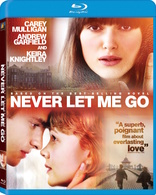
Movie rating
7.2 | / 10 |
Blu-ray rating
| Users | 3.4 | |
| Reviewer | 4.0 | |
| Overall | 4.0 |
Overview
Never Let Me Go (2010)
Three childhood friends reunite as adults to look back on their days at Hailsham, a seemingly idyllic but markedly offbeat boarding school in rural England. As the former classmates journey into their shared past, painful memories of love, jealousy and betrayal are brought to the surface, and the sinister secret at the heart of their unusual upbringing is finally revealed.
Starring: Carey Mulligan, Andrew Garfield, Keira Knightley, Izzy Meikle-Small, Ella PurnellDirector: Mark Romanek
| Drama | Uncertain |
| Romance | Uncertain |
| Thriller | Uncertain |
| Sci-Fi | Uncertain |
Specifications
Video
Video codec: MPEG-4 AVC
Video resolution: 1080p
Aspect ratio: 2.35:1
Original aspect ratio: 2.39:1
Audio
English: DTS-HD Master Audio 5.1
French: Dolby Digital 5.1
Spanish: Dolby Digital 5.1
Portuguese: Dolby Digital 5.1
Subtitles
English SDH, Portuguese, Spanish, Cantonese, Mandarin (Traditional)
Discs
50GB Blu-ray Disc
Single disc (1 BD)
Playback
Region A, B (locked)
Review
Rating summary
| Movie | 3.5 | |
| Video | 5.0 | |
| Audio | 4.0 | |
| Extras | 2.0 | |
| Overall | 4.0 |
Never Let Me Go Blu-ray Movie Review
Lets us go a little too soon.
Reviewed by Casey Broadwater February 3, 2011A universal truth, proved once again: The book is always better than the movie. That’s not to say, however, that this new adaptation of Kazuo Ishiguro’s moving 2005 novel Never Let Me Go—scripted by The Beach author Alex Garland and directed by music video mastermind Mark Romanek—isn’t a fine film. It certainly is, especially if your definition of fine is “delicate” or “stately,” the two adjectives that perhaps best suit this quiet, dour rumination on fate, friendship, and mortality. Watching the film is like taking an early morning stroll on a foggy moor beside some decrepit English manor—it leaves you chilled, thoughtful, aware of your place in life. And yet, the movie lacks an intimate knowledge of its characters, a familiarity that made the novel so devastatingly sad. I chalk this up to the narrative compression inherent in turning a 288-page book into a 103- minute theatrical experience; if the film had been allowed to linger longer on the small, personality-building, relationship-defining actions and interactions that fill the novel, it might have been more effective at generating the kind of eye-welling pathos that it tries to achieve in its bleakly reflective ending.
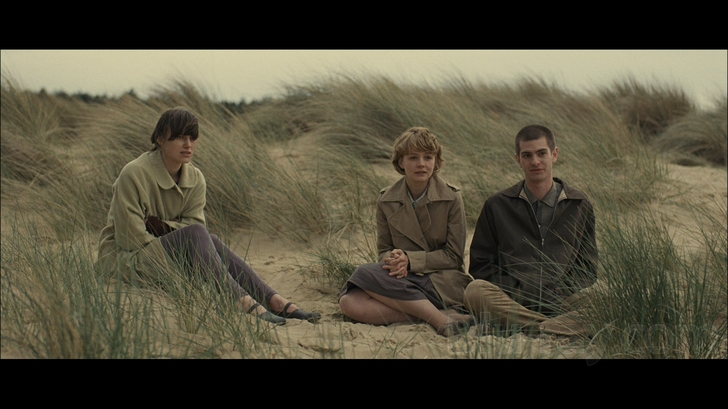
Ruth, Cathy, and Tommy
It verges on spoiler territory—don’t read on if you want to remain blithely unaware—but it’s nearly impossible to talk about the film without mentioning the soft sci-fi premise that’s gradually revealed to us: In an alternate version of the 1950s, a breakthrough in medical science allows the average human lifespan to exceed 100 years. However, this comes at an ethical cost—the advances are the product of cloning humans for the sole purpose of harvesting their organs when they reach adulthood. These “Donors” are expected to live through three, maybe four operations. After that, so the euphemism goes, they “complete.” Twenty years on, with most diseases now eradicated, society is willing to stay on the dark side of this moral line, but not without a significant amount of guilt. The clones, then, are raised at rural boarding schools—out of sight, out of mind—where they’re told only vaguely about the life that awaits them. One such school is Hailsham, which might easily be mistaken for a typical posh private learning institution if it weren’t for the strange intimations that something is awry. The students wear wristbands that seem to act as tracking devices and repeat horror stories about older kids who ventured past the school gate and were never heard from again. The headmistress, Miss Emily (Charlotte Rampling), is also aggressively insistent about matters of the body. “It’s much worse for children of Hailsham to smoke cigarettes than anyone else,” she says at morning assembly. “Keeping yourself well, keeping yourself healthy inside, is of paramount importance.”
It’s here that we meet observant, soft-spoken Cathy—our narrator—who nurtures a crush on the shy, rage-prone loner Tommy, only to have him stolen away by her best friend Ruth, the tall pretty girl whose outward composure hides a jealous and painfully insecure heart. It’s a classic love triangle, although the drama of it all is heightened by the trio’s awareness—and our knowledge—that they’ll never make it to middle age. There’s really no time to lose. After graduating from Hailsham, the three—played brilliantly in adulthood by Carey Mulligan, Andrew Garfield, and Keira Knightley—are relocated along with Donors from other schools to “The Cottages,” a farm where they’re largely left to their own devices while awaiting their first assignments. Some will go straight to donating while others will first become “Carers,” providing emotional support before and after operations. They all seem resigned to their fates, conscious that there’s no way to avoid the inevitable. There is a rumor, however, that if two Donors can prove that they’re truly, deeply in love, they can be granted a temporary stay of execution—so to speak—and given at least a few years to live together in peace. Tommy, in particular, latches onto this possibility like an emotional life raft.
Ishiguro’s metaphor is clear—Never Let Me Go is essentially about how we chose to face mortality. We can delude ourselves with false hopes and push the thought of death from our minds by focusing on the everyday, but eventually we all have to come to a place where we can accept it and choose to make the most out of the short time we’ve been given. Reading the book was an emotional experience that left me in an existential slump for days; after watching the film, though, I was left shrugging my shoulders, partially because I already knew what to expect—understandably —but also because Alex Garland’s script reproduces Ishiguro’s story only in the broadest possible strokes. For as ponderous as the film often is, it seems rushed too, never allowing us the time to just sit with the characters and get a feel for their lives. It hurries from one plot point to the next, skipping all the incremental steps in between. Cathy and Ruth’s love/hate relationship is reduced to its too-bare essentials. Tommy’s role is severely underwritten. Even the fictional, titular song “Never Let Me Go,” so important in the book as a key to Cathy’s longings and a touchstone for her love with Tommy, is short-shrifted here, relegated to a single scene early in the film. The end result reminds me a little of last year’s similarly good-but- not-great adaptation of Cormac McCarthy’s The Road—both films get all the external details right but can’t quite capture the profound interiority of their highly literary source materials.
But perhaps, as a huge fan of the book, I’m being overly harsh. Never Let Me Go is still a beautiful, elegiac film—it’s like a lavish Merchant Ivory production, only sadder. Director Mark Romanek, whose only previous feature credit is the creepy Robin Williams thriller One Hour Photo, gets the hushed tone of the novel just right and presents Hailsham and The Cottages almost exactly as I imagined them. The film’s cinematography is sumptuous, rich with heather grays, overcast skies, and deep green grass. I don’t think I saw a film last year more visually plaintive. (See the scene where the three friends sit in the grassy sand dunes, looking out at a derelict fishing trawler washed up on the beach.) Romanek also nudges nuanced performances out of his three leads, who could’ve easily overplayed their characters’ emotions—tipping the film into melodrama—but show an admirable amount of carefully measured restraint. Garfield—set to star in the reboot of the Spiderman franchise— inherently gets Tommy’s timid geekiness, and Knightley’s arc from uppity to regretful is painfully convincing. The star, though, is Carey Mulligan, a young actress who continues to show her versatility in each new role. Here, her Cathy is selfless and empathetic—the perfect Carer, holding onto her memories like a candle about to be snuffed out.
Never Let Me Go Blu-ray Movie, Video Quality 
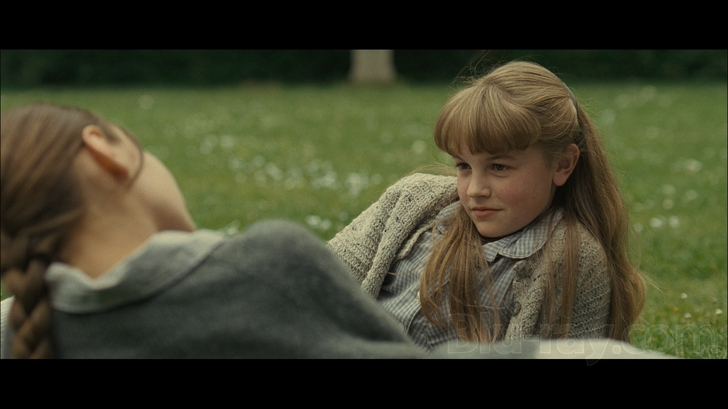
Never Let Me Go is simply gorgeous on Blu-ray, with a 1080p/AVC-encoded transfer that's rich, detailed, and naturally filmic. I really can't find any fault with the picture—everything looks exactly as it should. Clarity is almost always exemplary; from the individual fibers of wool sweaters and cardigans and knit caps to the brick facades of buildings and the textures of the actors' faces, detail is exceptionally refined. Color plays a huge role in setting the tone of the film—there's not a shade out of place in cinematographer Adam Kimmel's bleak palette—and the image is constantly lush with almost painterly hues, giving the film a certain lost-in-time quality. The sense of dimensional presence is aided by solid, balanced black levels and perfectly attuned contrast. Just as importantly, the image is completely untouched by DNR, edge enhancement, or any other attempts at digitally "fixing" what doesn't need to be fixed, and there are no compression issues at all to report. It's hard to imagine the film ever looking better than it does here.
Never Let Me Go Blu-ray Movie, Audio Quality 
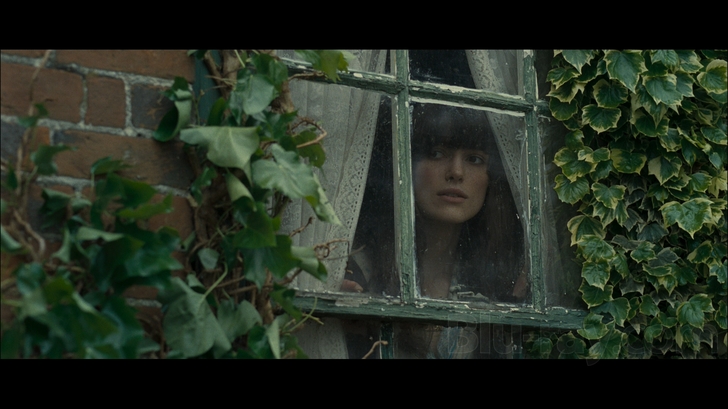
Given how quiet the film is, you shouldn't expect any intense sonic theatrics, but the DTS-HD Master Audio 5.1 surround track included here is certainly clean, dynamic, and thoughtfully designed. From Cathy's opening voiceover narration you'll notice how articulated the dialogue sounds. You know how voices in films sometime seem two-dimensional? Not so here; you often feel like you're listening to actual conversations that are happening a few feet away from you. It should go without saying the dialogue is perfectly balanced in the mix, which mainly consists of soft ambience and an aching orchestral score by Rachel Portman. The atmospherics are sometimes extended into the rear channels—accurate acoustics in the assembly room, lapping waves, hallway chatter, the quiet patter of rain—but the surrounds are more frequently used to envelope us in the music, which is always clean and forceful without being overbearing. A strong track all around.
Never Let Me Go Blu-ray Movie, Special Features and Extras 
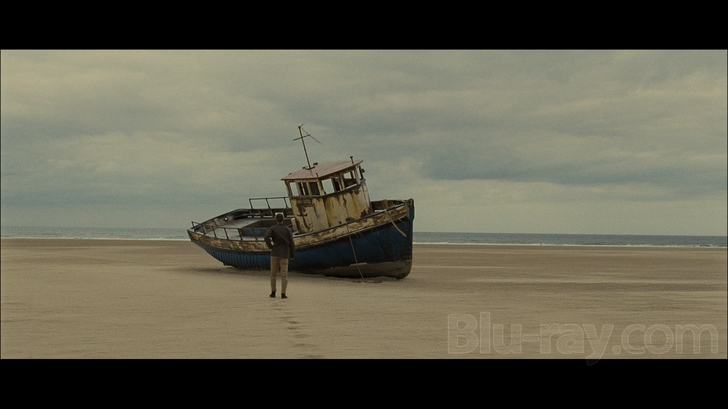
- The Secrets of Never Let Me Go (1080i, 30:10): A terrific making-of documentary featuring behind-the-scenes footage and interviews with all the key players in the film's production.
- Mark Romanek's On-Set Photography (1080p, 3:13): A self-playing gallery with beautifully stark black and white images of the cast and crew on set.
- Tommy's Art (1080p, 2:35): Another self-playing gallery, set to music from the film.
- National Donor Programme & Hailsham Campaign Graphics (1080p, 1:58): A gallery of fake posters and ephemera for the National Donor Programme.
- Theatrical Trailer (1080p, 2:26)
Never Let Me Go Blu-ray Movie, Overall Score and Recommendation 
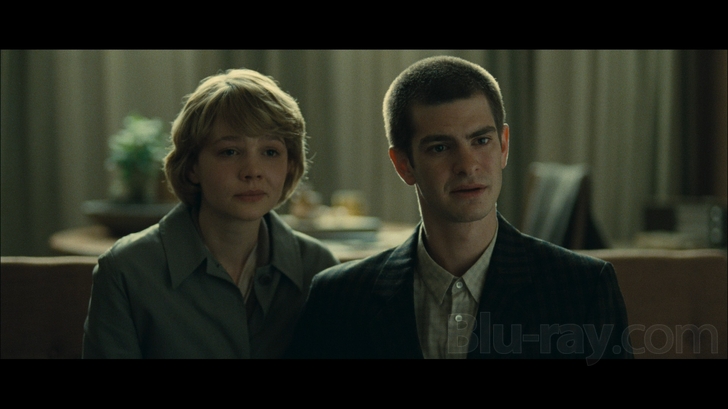
I was mildly disappointed in how much was left out of this adaptation of Never Let Me Go, but judging the film on its own terms, I can still see it for the quietly moving experience that it is. It's also absolutely gorgeous on Blu-ray, with a lush and immaculately detailed high definition transfer. Definitely read the book first if you haven't yet—it's a heartbreaker—but give the movie a shot too. I'm curious to see if it will strike me any differently on a second viewing sometime in the future. Recommended.
Similar titles
Similar titles you might also like

Disobedience
2017

To the Wonder
2012

The Kite Runner
2007

Past Lives
2023

Incendiary
2008

Her
2013

Jane Eyre
2011

The Ring
1927

Written on the Wind
1956

Lost in Translation
2003

Little Women
2019

Notorious
1946

A Dangerous Method
2011

Two Lovers
2008

Morocco
1930

September
1987

The Edge of Love
2008

If Beale Street Could Talk
2018

Columbus
2017

The Fountain
2006